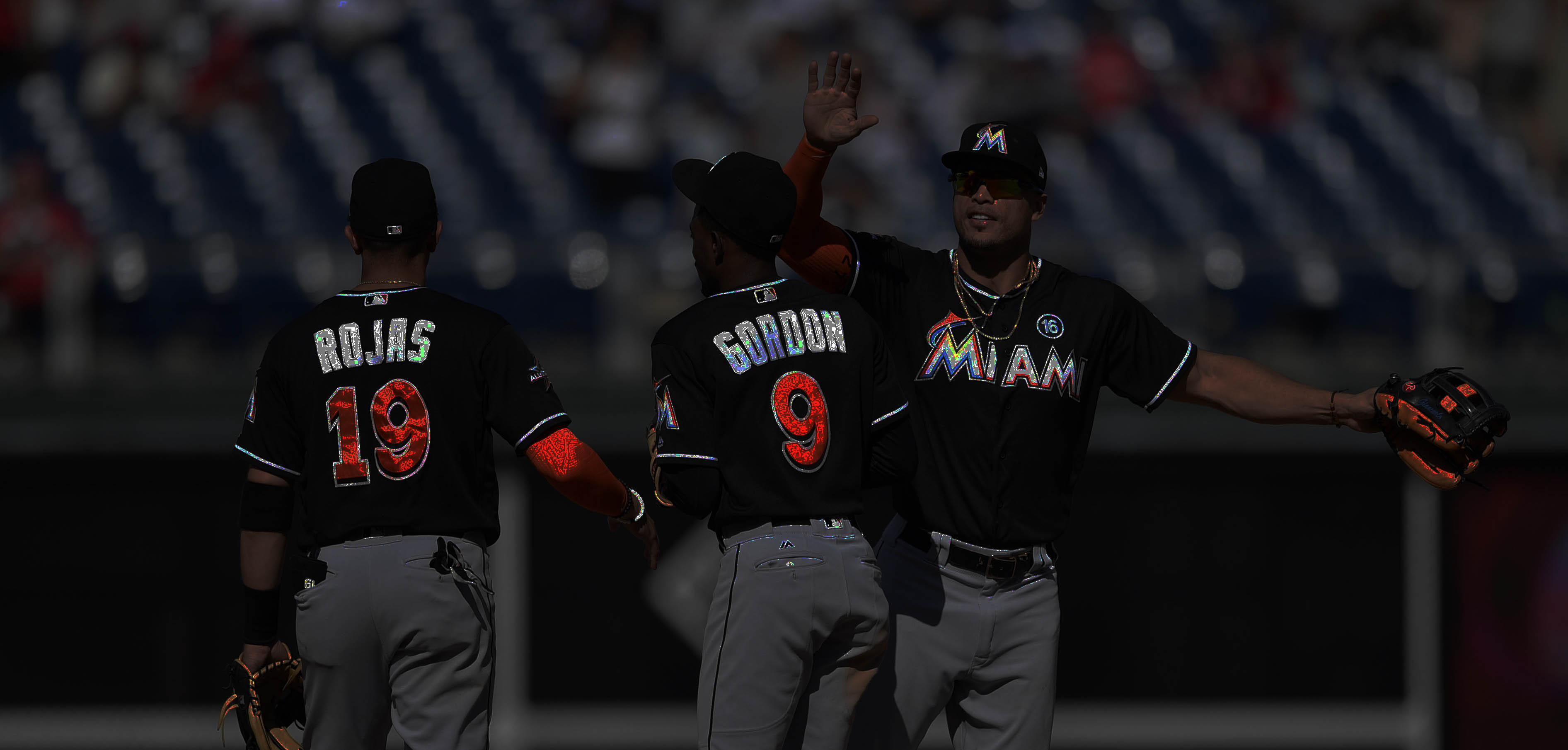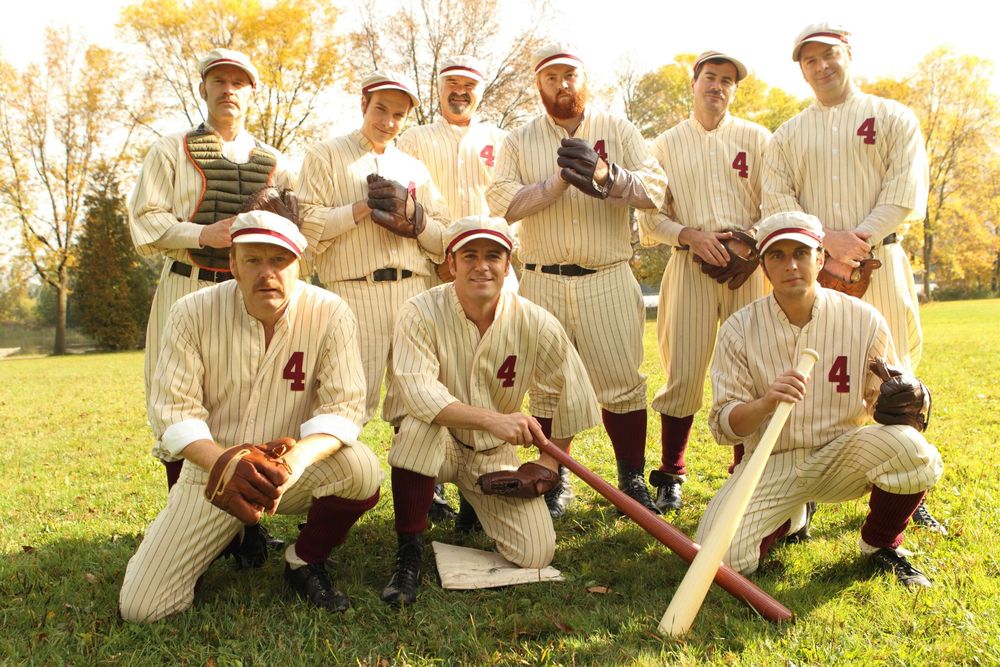

Offseason Athlete Social Media Posts, Ranked
By: James Fegan

5. Seemingly endless Instagram live video of their workout routine
Most would rank this near the very top because it is literally the only thing an athlete can do to avoid a wave of “Shouldn’t you be working out?” in the comments. Even the workout video runs some risk of drawing “maybe take some BP?”
But after the initial thrill of seeing an important member of your favorite team doing the same step up exercise you do at the gym, albeit while lugging a 50-pound weight, as their rep count spirals to a insane high, you realize this is their life. Hours on end staring into the gym mirror watching themselves while the least reliable member of their entourage holds up an iPhone camera. They’re the most intense person at your gym, who you suspect might also sleep and eat at the gym, and then they also play and watch a ton of baseball on top of that. If they’re lucky they do this for a third of their lives.
So because of that thought, it only ranks fifth.
4. The injury update
Maybe this is just the journalist perspective, but the picture of the mangled limb, the cast, a specific number of frowning emojis to indicate the severity, an occasional looped video of the incident occurring, is more than the average MLB team public relations department offers up. Probably because it’s a little creepy.
3. The long hunting explanation
Athlete hunting pics are divisive. Beyond objections about the images of your favorite player grinning next to a large corpse, who can understand what the hell they are talking about? They list the schematics of their gear–guns, size of the animal, the absorbency of the windbreaker they wore in their tree stand–like it’s a pitching line, and it’s all gibberish.
But it’s the justification of the hunting that’s truly transformative. The charts about the pounds of meat they used, the links to the health benefits of grassfed elk meat…deep in the heart of every gun-toting, major league star is a born blogger, and it will make you feel less alone in the world.
2. Cryptic thank-you post to city or teammate
Is it farewell? Has he been traded? Has his teammate been traded? Did ownership help him defang a tax fraud case the IRS was building against him? Is someone just trying to craft a simple sentence that won’t get parsed for every minor mistake in their second language, only for everyone to freak out? Or do athletes spend their boring months tormenting everyone with the slightest effort? Personally, the idea of casual sadism is most comforting.
1. The Gordon Beckham “Yolk!” tweet
It wasn’t the offseason, but Gordon Beckham tweeted “Yolk!” at the height of trade rumors of Kevin Youkilis coming to White Sox, prompting a mass of speculation that the trade was happening and Beckham had made a strange typo. Beckham was eating brunch at a restaurant called Yolk. A few days later, Youkilis was traded to the White Sox.
This is the pinnacle athlete tweet. Beckham is right up there with any sports figure in terms of the constant sewage he received on social media, and here he is, reduced to the most normie, 2009-era tweet of announcing where he is eating, and still triggers a minor crisis. And to this day I am convinced he knew something.
The offseason is bare and dormant until this mastery is repeated.

Waiting for Giancarlo
By: Nick Stellini

ESTRAGON: Nothing to be done.
VLADIMIR: I’m beginning to come round to that opinion.
ESTRAGON: I slept in that ditch again last night. I awoke nearly frozen to the bone, my phone bereft of any messages from the Marlins.
VLADIMIR: Mine as well.
ESTRAGON: It seems we’re trapped.
VLADIMIR: Trapped? Have I taught you nothing? We’re not trapped.
ESTRAGON: It certainly feels that way.
VLADIMIR: All will come in due time, even if it takes a blasted long time.
ESTRAGON: It seems we’re made to suffer. Nothing will happen, and nothing has happened in weeks. Or is it days?
VLADIMIR: You could trade for a reliever. It isn’t hard. Why you could even sign one.
ESTRAGON: But I don’t know how big my payroll is going to be yet!
VLADIMIR: Have you called the Marlins?
ESTRAGON: Many times over! At least I believe I have.
VLADIMIR: Even if you have, we’ll have to wait.
ESTRAGON: For who?
VLADIMIR: For Giancarlo. Nothing will happen without him.
ESTRAGON: When will he decide?
VLADIMIR: He’ll decide when he decides.
ESTRAGON: Even if he were to decide now, I doubt I’d go anywhere. Players are so expensive these days.
VLADIMIR: What exactly are you saving for?
ESTRAGON: I don’t remember.
VLADIMIR: You can’t line your pockets and then demand that I buy you new boots.
ESTRAGON: But my feet hurt! How do you expect me to walk about like this?
VLADIMIR: We’re not walking anywhere. We’re waiting for Giancarlo.
ESTRAGON: I thought we were waiting for Shohei.
VLADIMIR: Does it really matter? We’re waiting either way. Waiting for a sign, for some sort of loosening of the noose.
ESTRAGON: Is Giancarlo going to loosen the noose?
VLADIMIR: If you call settling for San Francisco that, perhaps.
ESTRAGON: Sounds terrible.
VLADIMIR: What isn’t terrible these days?

Another Baseball Episode
By Holly M. Wendt

Murdoch Mysteries is a Canadian period detective show that follows the career of Toronto detective William Murdoch at the turn of the nineteenth century. Though baseball is booming south of the border at that particular historical moment, the sport doesn’t exert much substantive or referential force on the show—save for a pair of episodes.
In Season 5, a baseball game between two of the city’s police stations frames a rather serious set of narratives about an organized crime ring hunting a woman with whom Detective Murdoch is romantically involved, a sordid and deadly erotic literary enterprise, and the fraught circumstances of family planning and contraception in Victorian Toronto. Though the game is a relatively minor part of the two-part arc—an ostensibly “friendly” competition—it continues a long-running struggle between the protagonist’s Station House 4 and Station House 5.
In the series, Station House 5 exists primarily as a foil for Station House 4: where Detective Murdoch is ethical, scientific, and supported by constables both earnest and curious, the officers of Station House 5 are corrupt and racist, more interested in convicting the most convenient suspect than enacting justice. Station House 5 is also powerful physically: the previous friendly contest ended in their favor at a brutal score of 16-5. When this year’s baseball game is proposed and Inspector Brackenreid, head of Station House 4, protests the seriousness of the cases his officers are pursuing—they don’t have time for games—the representative from Station House 5 uses homophobic, misogynistic language to goad the competitive, hot-tempered Brackenreid into accepting the challenge.
One of the show’s frequent subplots is the struggle between Brackenreid’s temper and his better angels, and one fears that the inspector’s desire to win has made him little better than his competition. First, Brackenreid adds a new officer to the station, one who’s never done any police work but who has, we’re told, played twelve years of professional baseball. Then, he tempts the man he thinks is Station House 5’s ringer—Slugger Jackson, who hits a towering home run during a practice Brackenreid and a constable secretly scouted—into punching him. Brackenreid then arrests Jackson for striking a fellow officer, thus removing him from the competitive equation.
But Brackenreid’s moral failings offer no advantage to Station House 4: his own ringer plays no significant role in the game; in fact, he’s so invisible it seems the writers forgot about him or regretted their choice in allowing Brackenreid that much knavery in the first of the two episodes. Also, Slugger Jackson is revealed to be a terrible ball-player who lucked into his home run. Station House 5’s real secret weapon is their pitcher, a man who throws spitballs. Though the episode itself makes no overt comment on the basic treachery of a spitball, it is implied by the grossness of the depiction; Station House 5’s pitcher literally expectorates onto the ball in his glove with all the viscous detail the show’s film crew can provide.
We know how this ends: with no real advantage save Murdoch’s keen powers of observation and his knowledge of physics translated into advice—swing six inches below where the ball seems to be heading—the good guys win. It’s not a good baseball game: everyone looks like an amateur; it’s played in a park with no baselines or visible foul territory, no spectators beyond personal friends and family. Station House 4 wins on a walkoff by Detective Murdoch, and Station House 5 does not, oddly enough, resort to any underhanded or dastardly behavior. There are no bean-balls, no cleats-up attacks, no reprehensible taunts.
By this point in the program, what can be solved has been solved. A man who has killed two women has been apprehended. A plan to save another woman’s life has been enacted. But the larger issues remain: comprehensively valuing women’s health and right to plan their families will not be achieved in the Canada of yesteryear, not even in this television show. The impasses of love and duty, of means and ends, linger on for characters and audience alike.
The baseball game does not address those concerns. Baseball itself in Murdoch Mysteries carries no true weight. In fact, given the deeply serious nature of everything that unfolds around this game, the baseball in these episodes feels especially frivolous. Still, when Station House 4 prevails and celebrates their inelegant, improbable victory in a public park near the water’s edge, while other city residents come and go with no particular interest in said victory, it’s that very lightness, its unexpected sportsmanship, its transience and insignificance with regard to the characters’ development and the show’s future action, that seems truest. Baseball is, in that moment, still a game.
Thank you for reading
This is a free article. If you enjoyed it, consider subscribing to Baseball Prospectus. Subscriptions support ongoing public baseball research and analysis in an increasingly proprietary environment.
Subscribe now
About 1/3 of the country and probably two orders of magnitude more people than understand FIP or wOBA. If you were actually curious to learn about something outside your bubble it would probably take you 5 minutes on Google to get to a point where you'd understand 75% of what they were saying. "Proudly ignorant of things I don't understand," isn't a good look on a president or a writer.